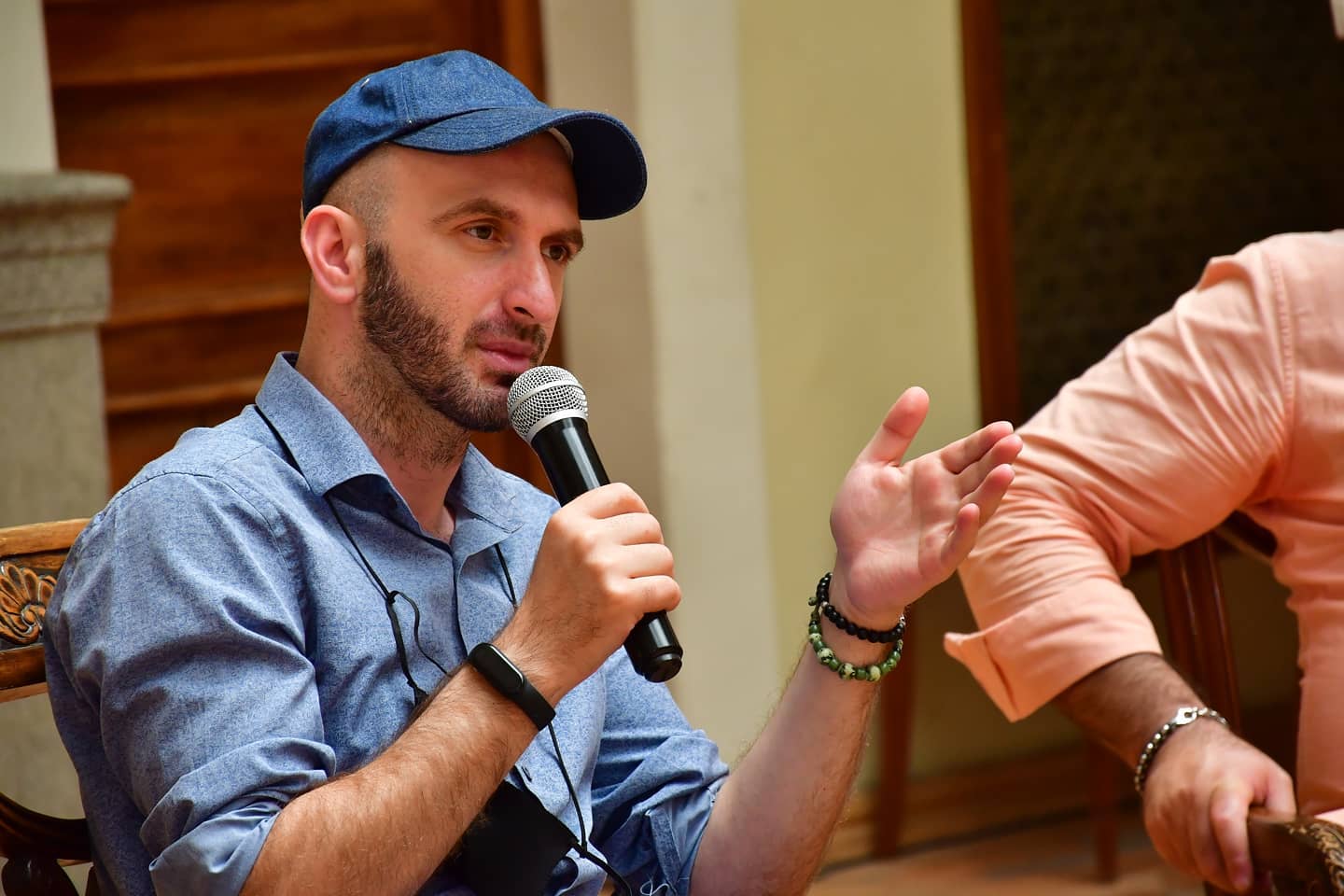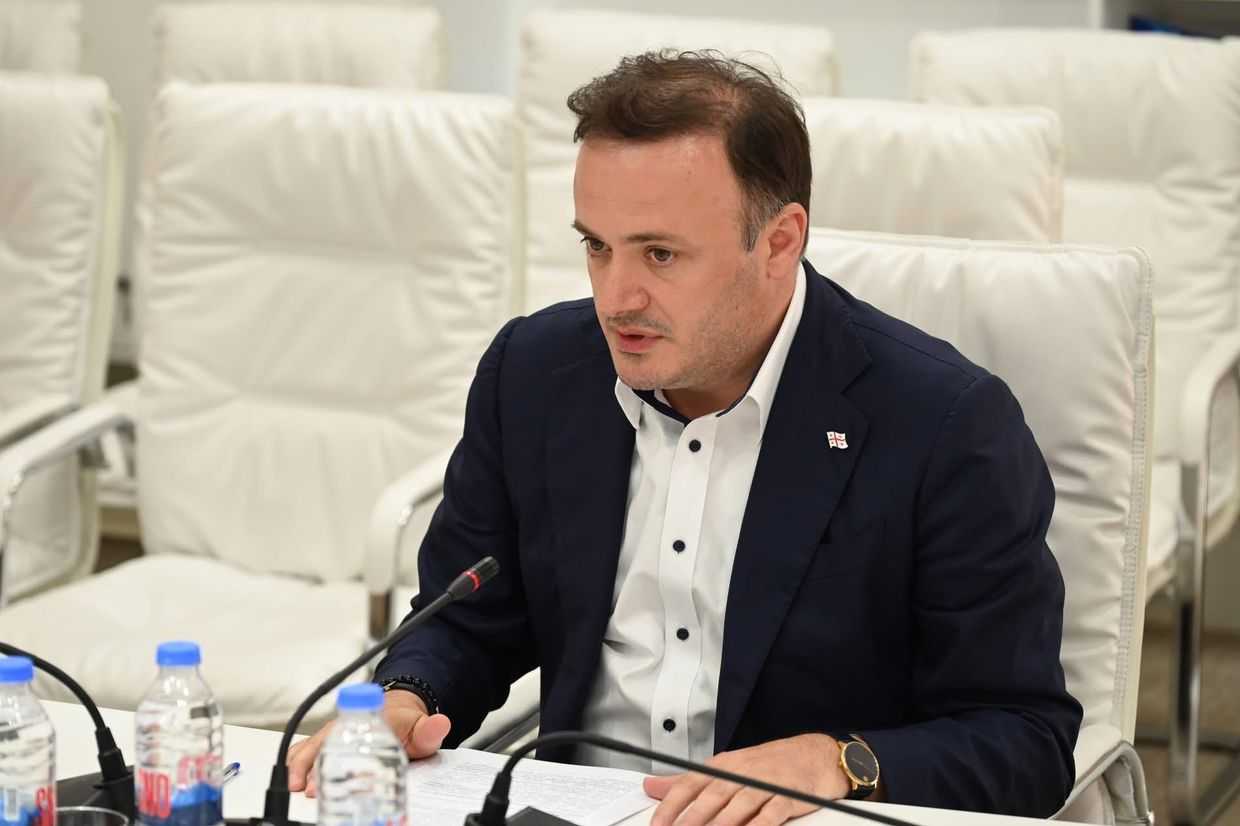
A book published to promote women’s empowerment and body positivity in Georgia has been met with backlash from women because the majority of the book focuses on the reactions of male writers.
Criticism of the book grew after allegations of sexual harassment, including against a 16-year-old girl, emerged online against one of the male authors, Giorgi Kekelidze. Kekelidze is the director of the National Parliamentary Library.
The book, entitled Love Yourself, was released on Monday by the Body Shop Georgia, local women’s rights group GrlzWave, and Tbilisi City Hall.
The book consists of a series of short stories by women who struggled with their body image, many of whom were bullied, and how they learnt to accept themselves.
Each story is followed by a section written by a male writer, most of which are longer than the original. Some were reflections on the women’s experiences while other writers rewrote and expanded on the women’s stories, often adding fictional elements.
In one example, a girl named Nini wrote about her struggle with her weight. This was followed by a longer text from writer Toresa Mossy, who rewrote her story from her perspective.
‘I like when an old floor under me starts to squeak. I feel that I am strong, I stand firmly on the ground, I can take firm steps, I can survive any hurricane’, he wrote in one passage.
Following anger over the publication, the Body Shop Georgia apologised. A spokesperson told OC Media that they had withdrawn the book from sale but that if anyone asked for a copy, they would be given them for free.
‘We experience the most bullying and violence from the opposite sex. We wanted them [men] to start talking about this’, the spokesperson said. ‘Because of the reaction, we realised we were going in the wrong direction’, they added.
They said that in future the company would work with gender specialists on similar projects. ‘It is heartbreaking and we do not want the stories of these girls to be overshadowed by this incident,’ the spokesperson said.
GrlzWave, who were also involved in creating the book, did not respond to a request for comment.
Speaking to OC Media, Ida Bakhturidze, coordinator of the Georgian Women for a Common Future, said that such an approach to empowering women was ‘wrong, insincere, and ineffective’.
‘Feminist history has long sought to present the perspective of women. When you do a women’s empowerment project and you publish male writers’ reflection — this is wrong, insincere, and ineffective’, she said.
‘Overactive flirtation’
Out of the seven male authors of the book, only four have so far responded publicly to the criticism.
In a post on Facebook which was deleted soon after, Giorgi Kekelidze said that his section of the book was the ‘worst text’ and that men should not write in the place of women. He also played down allegations of sexual harassment against him, apologising for his ‘overactive’ and ‘tiring’ flirtation with women.
Following the book’s publication, several women came forward criticising his inclusion and accusing him of sexual harassment. This included a woman who said he had harassed her when she was 16-years-old and several women who said he had harassed them while they were students in his university classes.

In a follow-up post, Kekelidze focussed on his past ‘flirtations’, which he said ‘could be interpreted to have or caused unintentional harm [to women]’.
The Body Shop Georgia told OC Media that they were not aware of any such allegations against Kekelidze when they approached him.
‘When we selected the writers, our big mistake was that the information [about allegations against Giorgi Kekelidze] did not reach us and we did not research [the authors] well,’ the company said.
Another of the authors, Toresa Mossy, defended the book in a post on Facebook saying he did not see ‘anything shameful, or unacceptable, or ridiculous here’.
In a comment under the post, he challenged his female critics. ‘Any women activist can face me and I will be able to describe any women topic, including menstruation, pregnancy, or anything else better than them’, he said.
Another of the writers, Alexandre Lordkipanidze, said that he had not been informed about the details of the project when he was approached, and highlighted that he had only written his reflections, and had not rewritten any of the women’s stories.
A fourth, Dato Gorgiladze, broke his silence after three days and joked that ‘some writers are associated with the Nobel Prize, and I — with the Body Shop.’
Following the publication of this article, GrlzWave, who were also involved in creating the book, responded to our request for comment with the following statement:
‘Initially, stories were selected for a digital book which included only the stories of women. Later, when the idea came up to make a print version of the book, The Body Shop consulted with us, but we told them that it would be incorrect to allocate this space for men.’
‘In the beginning, they agreed, but later they contacted us again and again raised this issue. During this conversation we again underlined that we were categorically against this and that we did not consider this the right decision.’
‘In the end, they did not consider our advice and request and the book was published in the form that society has just seen. We completely understand and share the criticism towards the book.’







